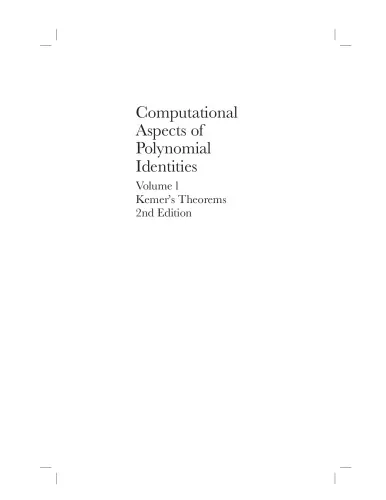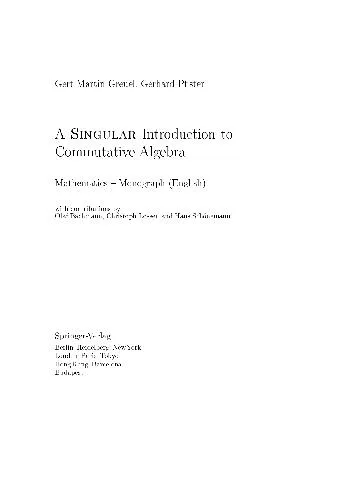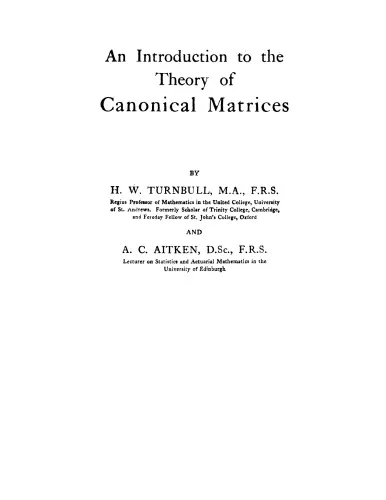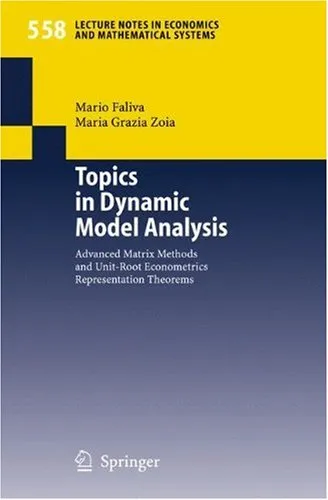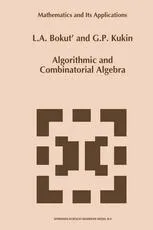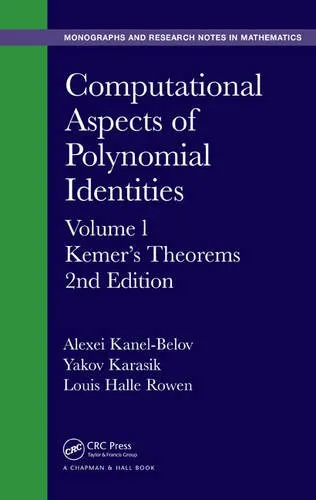Computational Aspects of Polynomial Identities, Volume l: Kemer’s Theorems
4.9
Reviews from our users

You Can Ask your questions from this book's AI after Login
Each download or ask from book AI costs 2 points. To earn more free points, please visit the Points Guide Page and complete some valuable actions.Related Refrences:
Introduction to 'Computational Aspects of Polynomial Identities, Volume I: Kemer’s Theorems'
Welcome to the comprehensive exploration of polynomial identities in associative algebras, as encapsulated in 'Computational Aspects of Polynomial Identities, Volume I: Kemer’s Theorems'. This detailed introduction aims to provide a thorough understanding of what this book offers, its key takeaways, notable excerpts, and its significance in the field of mathematics.
Detailed Summary of the Book
This volume embarks on a journey through the fascinating world of polynomial identities in associative algebras—a cornerstone concept in mathematical ring and algebra theory. The book is primarily rooted in the ground-breaking work of A. R. Kemer, whose theorems revolutionized the understanding of polynomial identity (PI) algebras in the 1980s. Kemer’s results laid the foundation for recognizing the structure of PI algebras over fields of arbitrary characteristic, which is a fundamental development for both theoretical and computational mathematics.
'Computational Aspects of Polynomial Identities, Volume I' delves into Kemer’s Theorems in an accessible and systematic fashion. The book begins by introducing core concepts and progresses into more complex topics such as T-ideals, relatively free algebras, and non-associative algebras. It offers an analytical discourse on Kemer's theory, proficiently bridging the gap between theoretical results and their computational applications. This approach not only enhances the reader’s understanding of polynomial identities but also provides practical insights into their significance in solving complex algebraic problems.
Key Takeaways
- Extensive exploration of polynomial identities and T-ideals within associative algebras.
- Comprehensive study of Kemer’s Theorems and their proofs, highlighting the structural patterns emerging in PI algebras.
- Insight into the development of computational methods applicable to theoretical frameworks.
- Connection of algebraic theories to practical computational solutions, illustrating real-world applications.
Famous Quotes from the Book
"Kemer’s theorems have reframed the landscape of PI algebras, demonstrating that complexity is often a veil for underlying universality."
"The journey from theory to computation is a pathway lined with algebraic elegance and logical finesse."
Why This Book Matters
The significance of 'Computational Aspects of Polynomial Identities, Volume I: Kemer’s Theorems' cannot be overstated. In the world of mathematics, understanding the structure and behavior of polynomial identity algebras is essential for both pure mathematicians and those involved in computational applications. This book meticulously translates complex theoretical constructs into computational frameworks, serving as an invaluable resource for researchers, students, and practitioners alike.
By advancing the reader's knowledge in polynomial identities, this volume plays a pivotal role in shaping modern algebraic research methodologies. Additionally, its emphasis on computational aspects opens new avenues for innovation in algorithmic approaches, solidifying its place as a critical text in the continuum of mathematical literature. Whether you are a mathematician, computer scientist, or an algebra enthusiast, 'Computational Aspects of Polynomial Identities, Volume I' provides the tools and understanding needed to excel in the exploration of algebraic structures and their applications.
Free Direct Download
You Can Download this book after Login
Accessing books through legal platforms and public libraries not only supports the rights of authors and publishers but also contributes to the sustainability of reading culture. Before downloading, please take a moment to consider these options.
Find this book on other platforms:
WorldCat helps you find books in libraries worldwide.
See ratings, reviews, and discussions on Goodreads.
Find and buy rare or used books on AbeBooks.
1363
بازدید4.9
امتیاز0
نظر98%
رضایتReviews:
4.9
Based on 0 users review
Questions & Answers
Ask questions about this book or help others by answering
No questions yet. Be the first to ask!
